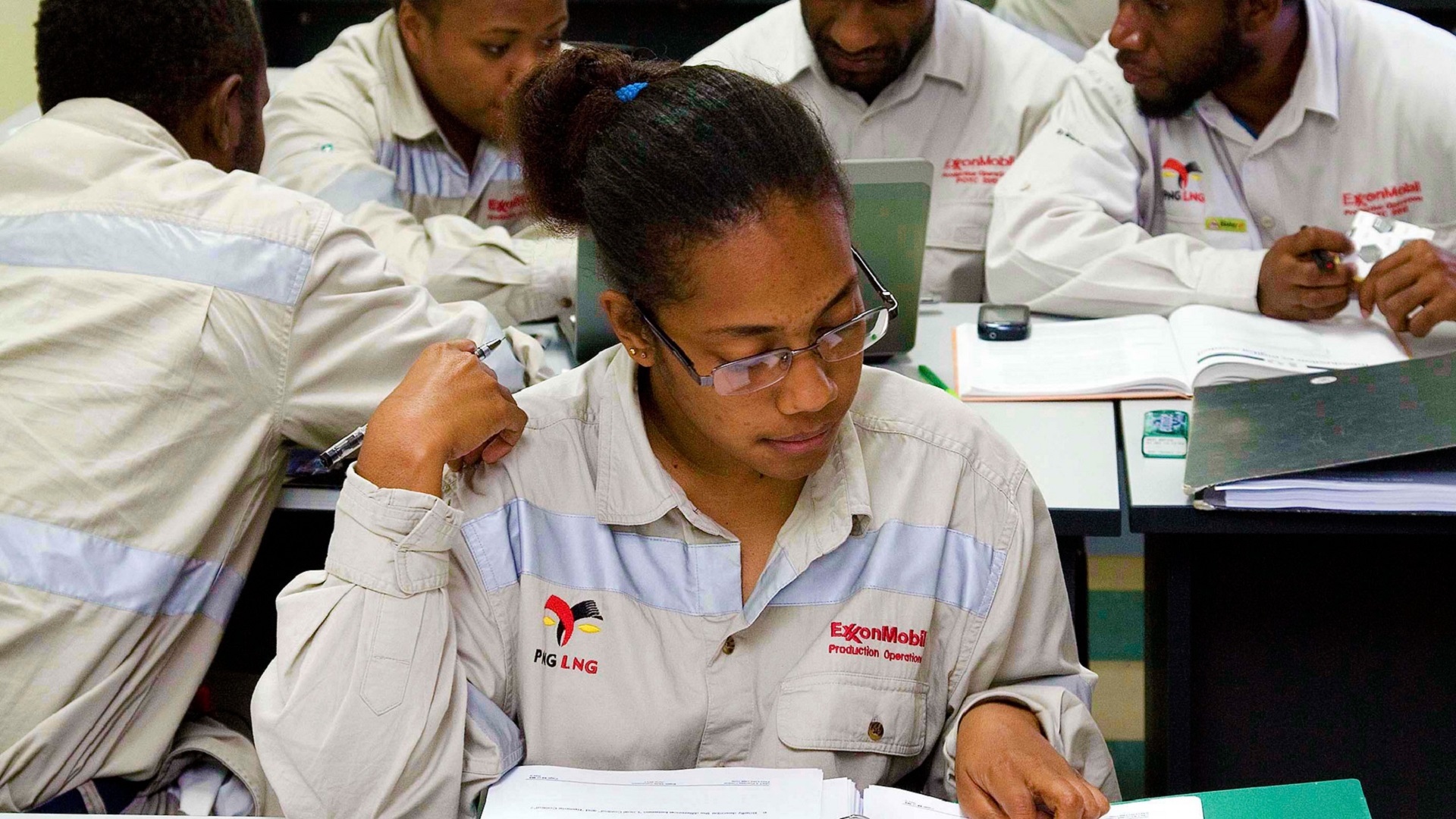A new report by Deloitte Touche Tohmatsu and the United Nations Development Programme (UNDP) on Papua New Guinea’s labour market has found that skill shortages are a major hindrance to employment growth.
According to a report released by UNDP yesterday ( released on Thursday, August 8, 2017), the 32-page report “Fulfilling the land of opportunity: How to grow employment in Papua New Guinea” is based on a joint survey of over 230 businesses in Port Moresby, Madang, Mt Hagan and Lae in late 2017.
Covering five employment sectors from management and hospitality to clerical and administrative occupations, the Report identified key factors preventing firms from hiring more staff, what skills businesses determine are most in need, practical impacts of the skills shortages and how PNG can help grow employment.
“This Report aims to provide a useful information base for policy makers, academics, businesses, training providers and other interested parties to identify ways to grow employment across the country. Our research shows the employment market is currently constrained with 60 percent of firms not expecting their headcount to increase over the next 12 months, so this is a real incentive to explore new initiatives to create jobs,” Roy Trivedy, UNDP Resident Representative said.
Mrs Lyndel Melrose, Partner, Consulting Services, Deloitte Touche Tohmatsu said the research highlights some of the barriers and recommendations to support the growth of employment in PNG. She also said that the Report highlights the need to upskill more people.
“With 83 percent of firms indicating local skill shortages as a barrier to growing employment. For the wholesale, hospitality and retail sectors; skills shortages are the number one factor affecting recruitment. ”
In addition to skills shortages, 71 percent of businesses said human factors were a barrier to hiring more staff, including staff productivity, attendance and punctuality.
The study conducted also highlighted the jobs and skills that are in dire need of upskilling. It revealed that management positions are the hardest to fill, with 76 percent of respondents reporting difficulty. Next on the line are professional services roles (lawyers and accountants), with just over half (51 percent) of respondents reporting difficulty.
Also shown are some individual positions within hospitality, wholesale and retail ranked very highly as being positions that are hard to fill including food trades (59 percent) and waiters (39 percent).
The reported states that skills shortages are magnified when a position requires multiple skills. For example, a person who can drive, support with administration and general support work, or when a new development project needs a certain mix of skills at certain times. A general conclusion was drawn that the higher the skill requirements of a particular occupation, the more difficult it is to source that occupation locally.
Recommendations and opportunities
The report highlights addressing these gaps in skills and knowledge amongst employees present a tremendous opportunity for the country. The nation has seen strong growth in recent years and with PNG hosting the Asia-Pacific Economic Cooperation (APEC) summit in 2018, and the Government’s pro-business stance, there is a strong potential for increased economic activity. However, to support progress and ensure it is sustainable and inclusive for everyone, the nation must continue to equip its people with the skills necessary to be employed or start a business.
It is understood, PNG has a large body of potential workers that are able to join the workforce.
Some of the key opportunities recommended include;
- Focusing on immediate skill gaps, such as food trades and construction trades, presents a near term opportunity to grow employment in PNG
- In addition, developing human factors will support firms to hire more staff
- With over 80 percent of the population working in the informal sector (not taxed or monitored by Government), there are approx 2.5 million people that can benefit from moving into the formal sector, where there is more job protection and opportunity to grow
- With 40 percent of the population under the age of 15, there are approx 3 million people that will join the work force over the next 20 years, proving a tremendous opportunity for economic growth
- With less than one-third of formal jobs accounted by women, there is an excellent opportunity to engage women in the economy.
Deloitte and UNDP collectively believe that realising PNG’s many labour market opportunities will require a collaborative and concerted effort by all stakeholders to ensure that the foundations for sustainable economic growth are in place.
Sustainable economic growth requires sufficient human capacity in the economy. Without a healthy, skilled and able workforce, the country will find it hard to meet the challenges of the future.


